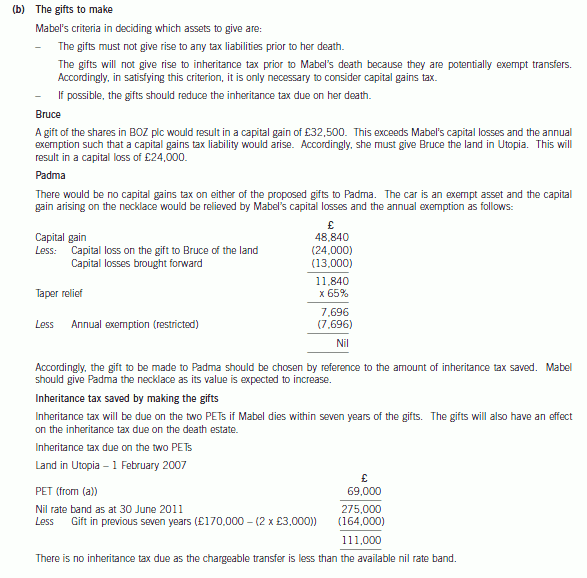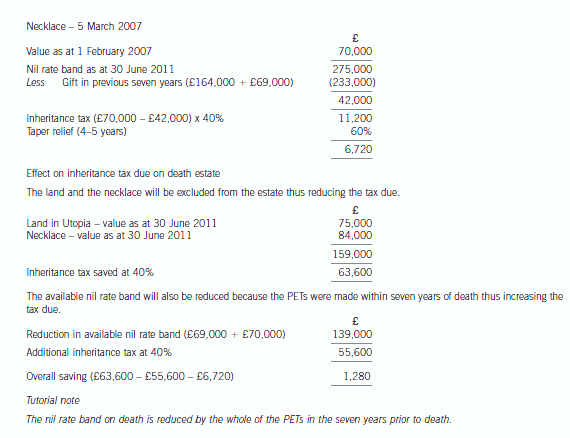重磅消息:听说江苏省ACCA考试有免考?你得有这些条件哦
发布时间:2020-01-09
众所周知,ACCA国际会计注册师考试科目多达15个科目,备考和复习起来的难度也毋容置疑是十分巨大的,而目前ACCA官方出台了相关的考试规则和免考政策,免考的科目一个人可以多达9科,具体免考的条件是什么呢?且随51题库考试学习网一起去了解一下,看看你能免考几科呢?
首先,在讲述免试政策之前,你得符合ACCA考试规则才可以参与考试,具体的规则如下:
1、申请参加ACCA考试者,必须首先注册成为ACCA学员。(需要到官网上申请注册)
2、学员必须按考试大纲设置的先后次序报考,即知识课程,技术课程,核心课程和选修课程。在一个课程中可以选择任意顺序报考。51题库考试学习网建议在一个课程中可以通过自身能力来考虑报名顺序,并不一定非要按照官方给出的顺序报名。
3、基础阶段的知识课程考试时间为两小时,基础阶段的技能课程和专业阶段所有课程考试时间为三小时,及格成绩为50分(百分制)。从2016年起,ACCA实行4个考季,即学员可选择在3、6、9、12月考季在当地笔试考点进行考试。学员每年最多报考8门。
4、基础阶段9门考试不设时限;专业阶段考试年限为7年,从通过第一门专业阶段考试之日算起。只要在7年内通过全部考试科目都算考核通过,下一步即可申请证书。
5、考试的报名时间不同,考试资费标准就不同(该优惠政策仅限网上报名)。简单点来说就是较早报名考试,费用会相对较少。报考时间分为提前报名时段,常规报名时段和后期报名时段。
接下来,就是万众瞩目的ACCA专业资格考试免试政策,建议ACCAer们收藏分享哟~




以上专业所对应的免试门数仅供参考,最终免试结果由ACCA英国总部审核确认。如有和ACCA英国总部所发布的免试政策有差异,一切以ACCA英国总部发布的文献为主~
如持有国外学历,或需要了解更详细免试情况,请查询官网或联系上财培训。
注意
1、在校生只有顺利通过整学年的课程才能够申请免试。(即未拿到学位证和学历证之前不能申请免试)
2、针对在校生的部分课程免试政策只适用于会计学专业全日制大学本科的在读学生,而不适用于硕士学位或大专学历的在读学生。
3、已完成MPAcc学位大纲规定课程,还需完成论文的学员也可注册并申请免试。但须提交由学校出具的通过所有MPAcc学位大纲规定课程的成绩单,并附注“该学员已通过所有MPAcc学位大纲规定课程,论文待完成”的说明。
4、特许学位(即海外大学与中国本地大学合作而授予海外大学学位的项目)部分完成时不能申请免试。
5、政策适用于在中国教育部认可的高等院校全部完成或部分完成本科课程的学生,而不考虑目前居住地点
大家是否已经了解到了自己能免试几科呢?51题库考试学习网提醒一下大家哦,免试虽然不用考试,但考试科目的报名费用还是得缴的哟~大家还是得及时缴费,以防出现不必要的麻烦~
下面小编为大家准备了 ACCA考试 的相关考题,供大家学习参考。
(e) Job instruction. (3 marks)
(e) Job instruction is a one to one method of training through which the trainee is shown how to fulfill a task and then allowed to get on with that task. It is a systematic approach to training involving immediate supervision and by allowing the trainee to complete the task is a cost effective way of training.
(b) Mabel has two objectives when making the gifts to Bruce and Padma:
(1) To pay no tax on any gift in her lifetime; and
(2) To reduce the eventual liability to inheritance tax on her death.
Advise Mabel which item to gift to Bruce and to Padma in order to satisfy her objectives. Give reasons for
your advice.
Your advice should include a computation of the inheritance tax saved as a result of the two gifts, on the
assumption that Mabel dies on 30 June 2011. (10 marks)


(c) Maxwell Co is audited by Lead & Co, a firm of Chartered Certified Accountants. Leo Sabat has enquired as to
whether your firm would be prepared to conduct a joint audit in cooperation with Lead & Co, on the future
financial statements of Maxwell Co if the acquisition goes ahead. Leo Sabat thinks that this would enable your
firm to improve group audit efficiency, without losing the cumulative experience that Lead & Co has built up while
acting as auditor to Maxwell Co.
Required:
Define ‘joint audit’, and assess the advantages and disadvantages of the audit of Maxwell Co being conducted
on a ‘joint basis’. (7 marks)
(c) A joint audit is when two or more audit firms are jointly responsible for giving the audit opinion. This is very common in a
group situation where the principal auditor is appointed jointly with the auditor of a subsidiary to provide a joint opinion on
the subsidiary’s financial statements. There are several advantages and disadvantages in a joint audit being performed.
Advantages
It can be beneficial in terms of audit efficiency for a joint audit to be conducted, especially in the case of a new subsidiary.
In this case, Lead & Co will have built up an understanding of Maxwell Co’s business, systems and controls, and financial
statement issues. It will be time efficient for the two firms of auditors to work together in order for Chien & Co to build up
knowledge of the new subsidiary. This is a key issue, as Chien & Co need to acquire a thorough understanding of the
subsidiary in order to assess any risks inherent in the company which could impact on the overall assessment of risk within
the group. Lead & Co will be able to provide a good insight into the company, and advise Chien & Co of the key risk areas
they have previously identified.
On the practical side, it seems that Maxwell Co is a significant addition to the group, as it is expected to increase operating
facilities by 40%. If Chien & Co were appointed as sole auditors to Maxwell Co it may be difficult for the audit firm to provide
adequate resources to conduct the audit at the same time as auditing the other group companies. A joint audit will allow
sufficient resources to be allocated to the audit of Maxwell Co, assuring the quality of the opinion provided.
If there is a tight deadline, as is common with the audit of subsidiaries, which should be completed before the group audit
commences, then having access to two firms’ resources should enable the audit to be completed in good time.
The audit should also benefit from an improvement in quality. The two audit firms may have different points of view, and
would be able to discuss contentious issues throughout the audit process. In particular, the newly appointed audit team will
have a ‘fresh pair of eyes’ and be able to offer new insight to matters identified. It should be easier to challenge management
and therefore ensure that the auditors’ position is taken seriously.
Tutorial note: Candidates may have referred to the recent debate over whether joint audits increase competition in the
profession. In particular, joint audits have been proposed as a way for ‘mid tier’ audit firms to break into the market of
auditing large companies and groups, which at the moment is monopolised by the ‘Big 4’. Although this does not answer
the specific question set, credit will be awarded for demonstration of awareness of this topical issue.
Disadvantages
For the client, it is likely to be more expensive to engage two audit firms than to have the audit opinion provided by one firm.
From a cost/benefit point of view there is clearly no point in paying twice for one opinion to be provided. Despite the audit
workload being shared, both firms will have a high cost for being involved in the audit in terms of senior manager and partner
time. These costs will be passed on to the client within the audit fee.
The two audit firms may use very different audit approaches and terminology. This could make it difficult for the audit firms
to work closely together, negating some of the efficiency and cost benefits discussed above. Problems could arise in deciding
which firm’s method to use, for example, to calculate materiality, design and pick samples for audit procedures, or evaluate
controls within the accounting system. It may be impossible to reconcile two different methods and one firm’s methods may
end up dominating the audit process, which then eliminates the benefit of a joint audit being conducted. It could be time
consuming to develop a ‘joint’ audit approach, based on elements of each of the two firms’ methodologies, time which
obviously would not have been spent if a single firm was providing the audit.
There may be problems for the two audit firms to work together harmoniously. Lead & Co may feel that ultimately they will
be replaced by Chien & Co as audit provider, and therefore could be unwilling to offer assistance and help.
Potentially, problems could arise in terms of liability. In the event of litigation, because both firms have provided the audit
opinion, it follows that the firms would be jointly liable. The firms could blame each other for any negligence which was
discovered, making the litigation process more complex than if a single audit firm had provided the opinion. However, it could
be argued that joint liability is not necessarily a drawback, as the firms should both be covered by professional indemnity
insurance.
(b) Describe the content of a reference. (5 marks)
Part (b)
A simple standard form. to be completed by the referee is acceptable to provide all the required details. A standard form. should
ask about the existing job title, the main duties and responsibilities of the current job, period of employment, present pay or salary
and the attendance record.
声明:本文内容由互联网用户自发贡献自行上传,本网站不拥有所有权,未作人工编辑处理,也不承担相关法律责任。如果您发现有涉嫌版权的内容,欢迎发送邮件至:contact@51tk.com 进行举报,并提供相关证据,工作人员会在5个工作日内联系你,一经查实,本站将立刻删除涉嫌侵权内容。
- 2020-01-09
- 2020-05-20
- 2020-02-14
- 2020-05-07
- 2020-05-14
- 2020-01-09
- 2020-01-29
- 2019-12-29
- 2019-07-19
- 2020-09-04
- 2020-04-07
- 2019-07-19
- 2020-05-14
- 2019-07-19
- 2020-01-09
- 2020-04-22
- 2020-05-15
- 2020-01-04
- 2020-04-03
- 2020-04-29
- 2020-01-04
- 2020-01-01
- 2020-02-15
- 2020-03-21
- 2020-02-13
- 2020-05-14
- 2019-07-19
- 2020-04-01
- 2020-03-18
- 2020-04-18